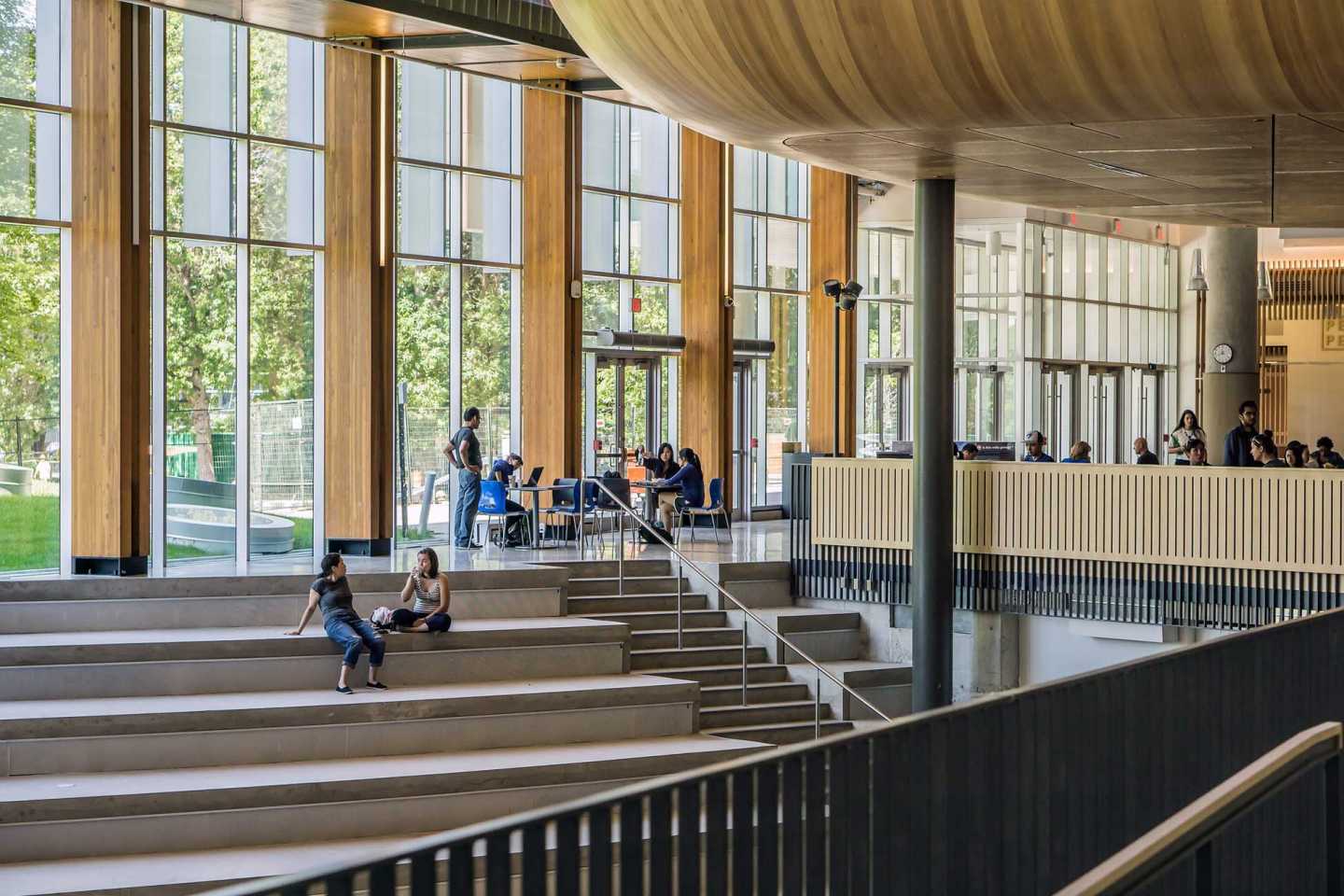Despite all of these overwhelmingly positive reasons to study abroad, less than 10% of North American students study abroad at some time during their degree. There are distinct, and very real, reasons for this. Research has identified the “4 C’s” of obstacles to study abroad: cost, curriculum, cultural and circumstantial.
In this section, we’re going to look at these obstacles in detail—and at ways to overcome them.
1. Cost considerations
The most common reason that students give for not studying abroad is the cost. Depending on the program you choose, its location, length of time abroad and specific activities undertaken, studying abroad can be very expensive. There is no doubt that some study abroad organizations charge very high fees. Even if you go on exchange through your home university—in which case you will continue to pay your usual tuition fees— it will likely cost you more than staying at home. Airfare, travel insurance, visas, vaccinations and other expenses all add up. But there are ways to minimize or even overcome these costs.
(i) Funding
There is a surprising amount of funding that exists to support study abroad, once you start searching for it. Universities, governments, corporations, foundations, non-profits and private donors are all potential sources of funds. In Canada, there is federal and provincial government funding, such as the Foreign Government Awards, the Commonwealth Scholarship Plan, the Quebec Mobility Bursary, and scholarships such as the Trudeau Scholarships, Saltire Scholarship and DAAD funding. In the USA, funding such as the Boren Undergraduate Scholarships for Study Abroad, the Benjamin A. Gilman International Scholarship and the Fulbright Program, exist specifically to support study abroad. Many universities and colleges, and even individual faculties, have their own funding to encourage study abroad. There is also specific funding from various sources geared towards women, minorities, single parents, members of the LGBTQ community, and other target groups.
The key to accessing funding for study abroad is that you absolutely must start early, and plan to invest significant time in the process. Research potential sources of funding carefully, and seek out lesser-known funds as these tend to be less competitive. Be aware that often application deadlines occur far in advance of your planned departure date, and that applications can, at times, be lengthy and demanding.
(ii) Work opportunities
Depending on where you study abroad, country regulations may allow you to take up part-time employment while studying abroad. An Australian student visa, for example, allows you to work up to 40 hours every two weeks. Also, some universities offer the possibility of research or teaching assistantship positions for international graduate students. These may be important considerations for you when narrowing down your destination options.
(iii) Length of study
Some countries offer degree programs that are considerably shorter than those programs offered in North America. This is particularly true of professional degrees. In the UK and Australia, students can be admitted directly into medical and law degrees from high school, which is not the case in North America. Similarly, Masters degrees in these countries are often only one year (compared to the usual two years in Canada and the USA), and PhD degrees are commonly three years (compared to often four years plus). Even if the tuition expenses are higher than you would pay at home, the total cost of a degree abroad may be comparable or even less due to the shorter duration. Be sure to factor in the cost of living when making these comparisons.
(iv) Find a low-fee destination
Did you know that in some countries university tuition is free or a nominal cost—even for international students? Many of them even offer courses—sometimes full degrees—in English.
Germany’s public universities charge no tuition for undergraduate and PhD programs;
France’s public universities are free at all levels of study, for students of all nationalities (expect a small administration charge);
Norway and Iceland offer free tuition to international students at all levels of study, while Denmark and Sweden extend free tuition to international PhD students;
Argentina’s public universities charge only a small, nominal fee to international students;
In addition, a range of countries offer tuition at a cost much lower than Canada or the USA: for a start, check out Italy, Greece, Austria, Spain and China.
Be sure to also consider your destination’s cost of living. Some of the leading countries for study abroad are also the priciest: the UK, for example, is now one of the most expensive locations to study as an international student. Some of the most affordable locations, once tuition and cost of living are combined, include Germany, Greece, Taiwan, Spain, Argentina and South Africa. Studying in smaller cities will keep expenses much more affordable than the larger urban centres as well.
Keep in Mind
- A lot of financial support does exist. It takes time and research.
- You might find tuition fees abroad are cheaper than they would be at home.
- Your program abroad might be shorter, saving tuition fees and getting you into the workforce earlier.
- You might be able to find work abroad to help support you during your studies.
- Be financially-savvy with your destination.
2. Curriculum: credits and qualifications
Another concern for students is the transferability of courses and qualifications. This applies to both exchanges or short-term study abroad, and professional degrees abroad, such as medicine or law, an obvious concern is whether overseas qualifications will be recognized.
(i) Getting credits
For exchanges or short-term study abroad: will courses taken abroad fill the requirements of your home university’s degree curriculum? Will you get credit for your studies? You may have specific academic constraints to your studies, and few electives, which can restrict your choice of courses abroad. Also, you may have heard stories of other students’ challenges trying to receive academic credit for courses taken abroad. All of this can be quite off-putting!
For students going on exchange or short-term study abroad courses, some of what you may have heard may simply be misinformation. A study abroad experience is not intended or designed to lengthen your degree. For those studying on exchange, agreements between home and host universities allow for credit to be transferred back to your home university. For other courses, if you hope to receive credit for studying abroad, then you must have your courses approved by your home institution’s academic advisors; credits will not be transferred unless approval has been given. Do your research on courses abroad to find complementary courses, and seek advice from advisors both at home and abroad.
(ii) Degree equivalency
For students doing professional degrees abroad, such as medicine or law, an obvious concern is whether overseas qualifications will be recognized. Medical graduates, for example, may find it difficult to return home after graduation, as the number of residencies in Canada is tightly capped. In addition, provincial governments and medical schools may give first pick of residencies to Canadian-trained doctors. More and more students are applying internationally to do such degrees because of the high level of competition for acceptance into Canadian programs, but the uncertainty about job prospects afterwards can be worrying.
With regards to equivalency, you will need to investigate this thoroughly in advance. Organizations like the Foreign Credentials Service of America (http://foreigncredentials.org) or World Education Services (www.wes.org) in both the USA and Canada help immigrants and citizens who have international credentials. You can use the free WES Degree Equivalency Tool to see what the North American equivalency of a degree taken abroad would be.
Overseas universities that recruit students into professional programs should be able to answer your questions about equivalency and the transition home; it is a good idea to ask to be put in touch with alumni from your country who have been through the process and can offer firsthand advice. Research the professional transition back to North America, whether you would require extra training, and what the probability of obtaining work is. You should always verify information with licensing boards or provincial or state governments.
While this process can be much more daunting than simply pursuing a degree in your home country, remember there are benefits. “Originally, it was Plan B,” says a student who attended St. George’s University on the Caribbean island of Grenada. “But as soon as I got there, I realized that everyone’s there because being a doctor is all they ever wanted to do. Think of the passion that comes from people willing to go halfway around the world to study.” You may be able to experience training that is unavailable in a North American classroom, and come into contact with issues that you would otherwise not learn about. In our increasingly-globalized work situations, such knowledge could prove exceptionally useful.
Keep in Mind
- Studying abroad for credit should not lengthen or postpone your degree, as long as you arrange it properly.
- Do your research on courses abroad and you will find complimentary courses and degrees considered equivalent to North American standards.
- Transferring credit happens when you’ve had courses verified by an academic advisor.
- For exchanges, you can request help with the application process from your university.
- Universities do encourage their students to study abroad because the benefits are widely recognized.
- Doing a degree abroad can give you an edge in terms of level of experience over other students.
3. Cultural and circumstantial factors
Various cultural and circumstantial barriers in your life might make it challenging or impossible to study abroad. For example, your family might discourage you, or the timing might not be right for you. Perhaps you’re a part of a first-generation Canadian family who fought hard to come to Canada, and for whom getting to university is already seen as a huge obstacle. Perhaps you are a single mother or sole provider for your family. You might consider study abroad to be too much of a personal risk. You might have specific familial, personal or financial obligations, or perhaps you have health challenges which deter you from going abroad.
Don’t completely disregard studying abroad yet! After doing some research, you may well find that there are some flexible, shorter-term, less expensive and workable opportunities for you. Speak with international officers or advisors at your place of study and let them know what your particular limitations are. You may find that they offer you suggestions that are feasible for you. Give yourself time to make the appropriate decisions, and speak with all those whom it may concern. If you plan ahead and prepare accordingly, study abroad could be a viable option for you too.
Keep in Mind
- Find out what your options are - you might be surprised.
- Look for options that may work for your situation.
- Ask for help.
- Be courageous!
All of these are very real and important considerations, and you need to determine whether study abroad is a good decision for you.
To make an informed decision, you need to start off with the correct information. You also need to do your research to find the right opportunity for you.
The following sections will help you in this process. You can find out more about the types of study abroad programs that exist and also how to choose the study abroad opportunity that is right for you.
Whatever international adventure you do decide to take up, a spirit of adventure, a little risk and courage, and an openness to newness and change, will lead you to the experience of a lifetime and new ways of seeing the world.
Add to Favorites


